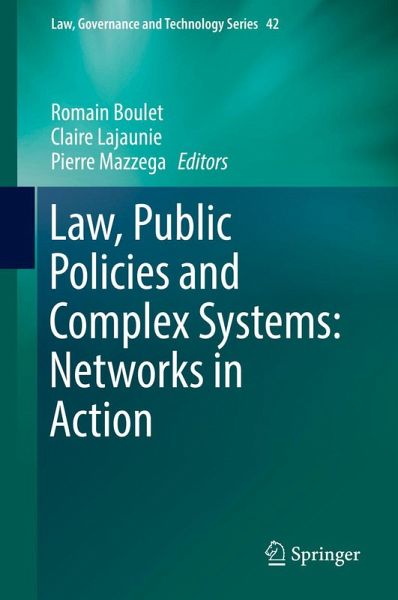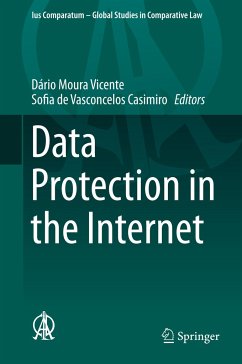
Law, Public Policies and Complex Systems: Networks in Action

PAYBACK Punkte
53 °P sammeln!
This book investigates how various scientific communities - e.g. legal scientists, political scientists, sociologists, mathematicians, and computer scientists - study law and public policies, which are portrayed here as complex systems. Today, research on law and public policies is rapidly developing at the international level, relying heavily on modeling that employs innovative methods for concrete implementation.Among the subject matter discussed, law as a network of evolving and interactive norms is now a prominent sphere of study. Similarly, public policies are now a topic in their own rig...
This book investigates how various scientific communities - e.g. legal scientists, political scientists, sociologists, mathematicians, and computer scientists - study law and public policies, which are portrayed here as complex systems. Today, research on law and public policies is rapidly developing at the international level, relying heavily on modeling that employs innovative methods for concrete implementation.
Among the subject matter discussed, law as a network of evolving and interactive norms is now a prominent sphere of study. Similarly, public policies are now a topic in their own right, as policy can no longer be examined as a linear process; rather, its study should reflect the complexity of the networks of actors, norms and resources involved, as well as the uncertainty or weak predictability of their direct or indirect impacts.
The book is divided into three maain parts: complexity faced by jurists, complexity in action and public policies, andcomplexity and networks. The main themes examined concern codification, governance, climate change, normative networks, health, water management, use-related conflicts, legal regime conflicts, and the use of indicators.
Among the subject matter discussed, law as a network of evolving and interactive norms is now a prominent sphere of study. Similarly, public policies are now a topic in their own right, as policy can no longer be examined as a linear process; rather, its study should reflect the complexity of the networks of actors, norms and resources involved, as well as the uncertainty or weak predictability of their direct or indirect impacts.
The book is divided into three maain parts: complexity faced by jurists, complexity in action and public policies, andcomplexity and networks. The main themes examined concern codification, governance, climate change, normative networks, health, water management, use-related conflicts, legal regime conflicts, and the use of indicators.














